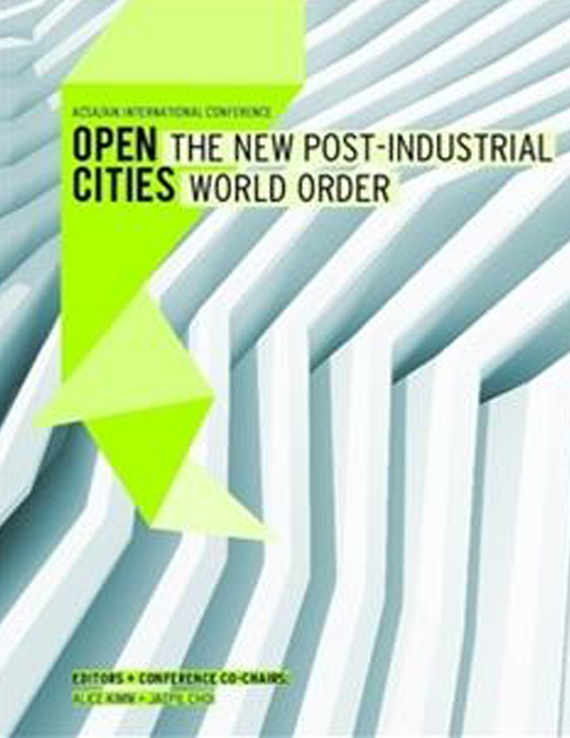Author(s): Eric Thomas Nulman
This presentation will outline an alternative model of pedagogy – Pedagogy atFull-Scale – designed to cultivate a student’s material sensibility in the digital age.Employed here in a studio course format, full-scale exercises have proven to besuccessful tools in: developing the students’ material sensibility; cultivating theirability to employ material effects as a design mechanism; linking the production ofatmosphere to the spatial experience; changing the working scale of the creativeprocess; and conjoining visualization and realization into a synthetic process.The traditional studio working method of designing via small-scale models and 2-Ddrawings limits a students’ development of their material sensibility. Working withmaterials in-hand develops a students’ ability to expose a material’s latent potential.By examining the tactile qualities of materials and the immaterial qualities ofatmospheric effects, students improve their understanding and appreciation of amaterial’s qualities, performance capabilities, and sensory affects. Full-scale exercisesprompt students to be explicit about the material substance and aestheticperformance of their design proposals. In these exercises the materials used arenot abstract or representative of another material, such as the common architecturaluse of basswood and cardboard, but are the project’s intended materials.Tectonics and geometric forms become linked with a material and its specific attributes.This coupling of materials and tectonics encourages an alternative designprocess that integrates production techniques and strategies into the creativeprocess towards the realization of the material tectonic and its resultant materialeffect. Research through full-scale making challenges the traditional working scaleat which the design process begins, and the timing in which production techniquesand strategies are considered. While studies on urban form, program, and compositioncan be reduced in scale without compromising their results, studies onmateriality cannot and need to be investigated at or near full-scale. Unlike a mockupthat occurs after the design is finalized, the full-scale work here is developedduring the concept phase of design. Prototyping investigations completed at theearly stages of the conceptual process yield an invaluable opportunity for studentsto test with their own senses the affective qualities of their material assembliesand make necessary design adjustments.To explicate the pedagogy, one studio course (an undergraduate studio where materialsare introduced to students for the first time) will be examined in detail.The course is structured to allow a deep investigation into two material systems:one focused on structure and the other envelope. Beginning with a case studyexercise, students analyze the limits and potentials of their material systems.Understanding and application of this knowledge is demonstrated in the designand fabrication of a full-scale pavilion. After having worked with the material systemsfirst-hand, students are able to employ them in larger project with a publicprogram and urban site. The final project outcomes demonstrate the ends of apedagogy at full-scale: leaving students with an applied understanding of how amaterial and its associated systems of assembly can be intertwined in the creativeprocess to generate the performance and experience of architecture.
Volume Editors
Alice Kimm & Jaepil Choi
ISBN
978-0-935502-91-6

 Study Architecture
Study Architecture  ProPEL
ProPEL 
